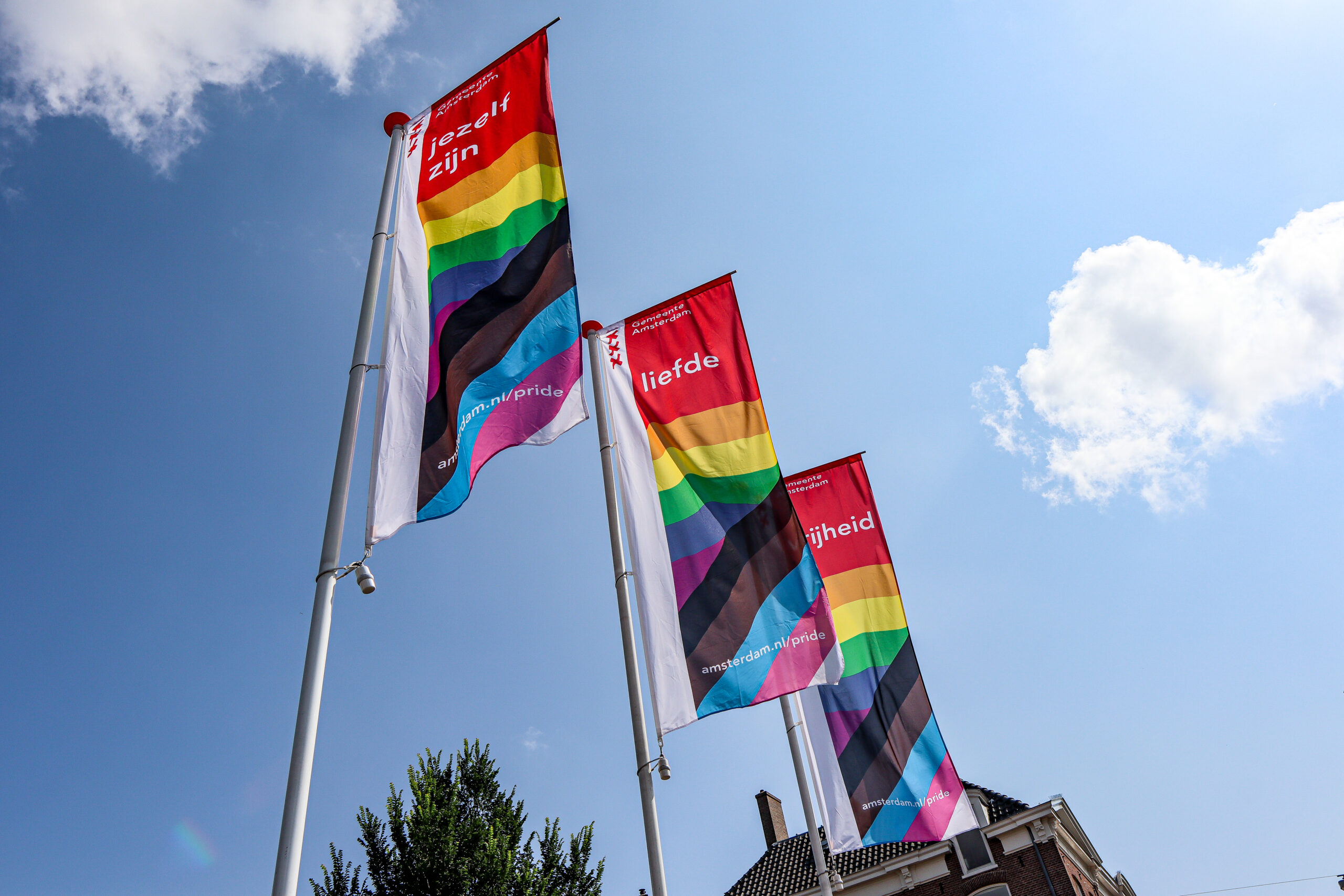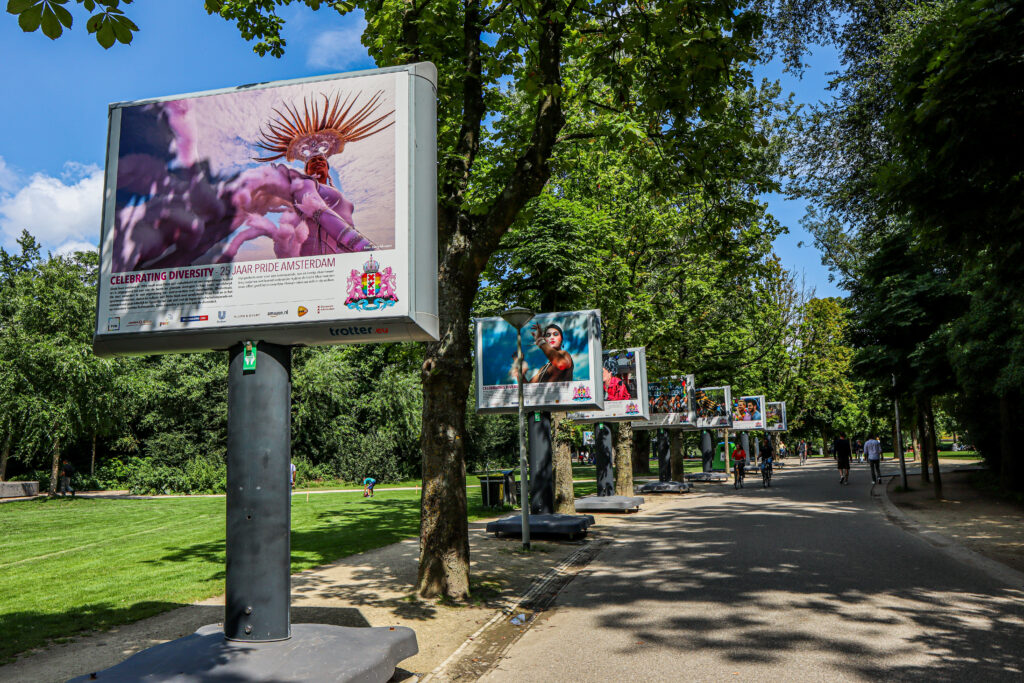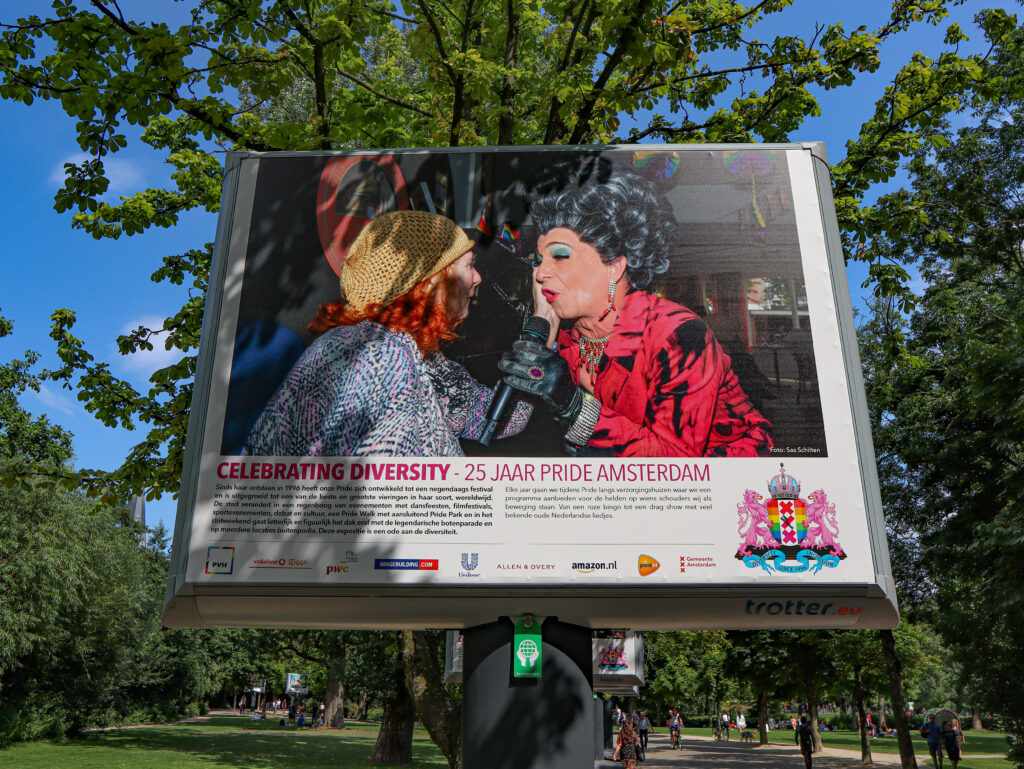
Saturday 31 July saw the start of the annual Pride in our capital city. Amsterdam organised its very first Pride in 1996. This 25th edition will unfortunately have to do without a boat parade, but with a Pride Walk and small-scale activities spread throughout the city. This year’s Pride theme is ‘TAKE PRIDE in us‘. It is an invitation to people who do not belong to the lhbti+ community themselves to support people within that community. Taking pride also means that lhbti+ individuals should be able to be themselves, on the streets and in the workplace. Unfortunately, this is not the daily reality. This is because in many areas our society is organised from a binary-sex model with an accompanying heterosexual norm. This model excludes groups with a different sexual orientation or gender identity. The result can be unequal treatment or even mental and/or physical violence, as shown in the ‘Action research anti-discrimination LGBTQI+ 2020-2021‘, which was commissioned by the municipality of Amsterdam.
Fight for equal treatment in the workplace remains necessary
Discrimination in the workplace towards lhbti+ individuals still occurs but often in more subtle forms, such as through stereotyping, jokes and/or bland remarks. ADI expert Remco Boxelaar therefore founded Corporate Queerop in 2018, a platform for lhbti+ professionals who question and challenge the heteronorm in Dutch business. Until that norm is addressed, lhbti+ individuals will tend to conform to prevailing heterosexual norms. This is according to research by Deloitte. In a study, this business services provider shows that employees who do not belong to the norm adjust their appearances and behaviours in such a way that they can continue to belong. As many as 83 per cent of survey respondents who identify as lhbti+ adapt at work. For example, they deliberately stay “in the closet”, do not dress as lhbti+ individuals too “feminine” or too “masculine” or leave their lhbti+ partner at home on staff outings. According to Deloitte, this behaviour has a major impact on employees’ well-being. It negatively affects their self-esteem and job satisfaction. The study concludes that authenticity should become a key value within organisations so that lhbti+ employees can be more themselves. And that authenticity starts at the top.

Take action yourself
It is therefore important that employers become more aware of the subtle processes of exclusion of lhbti+ employees in the workplace. You can do that by learning about your organisational culture. Want to know more about this? SER Diversity in Business published the knowledge document “LGBT+ in the workplace” in 2020. Het bevat veel praktische tips over hoe u uw organisatie meer lhbti+-inclusief kunt maken. Zelf kun je ook je steentje bijdragen, bijvoorbeeld door collega’s aan te spreken als je merkt dat ze iemand niet gelijk behandelen of door meer te weten te komen over de geschiedenis en verhalen van lhbti+ personen. Bezoek bijvoorbeeld met je collega’s een van de onderstaande fototentoonstellingen die tijdens de Pride te zien zijn:

- ‘Celebrating Diversity‘: a photo series showing the struggle and energy of 25 years of Amsterdam Pride. On view until 10 August at the Vondelfontein in Vondelpark.
- ‘Old Pink‘: portraits of older generation lhbti+ individuals. On view until 20 August at Westerkerk.
- ‘Pride Photo Outdoor‘: exhibition. On view until 31 August at various locations around the city.
